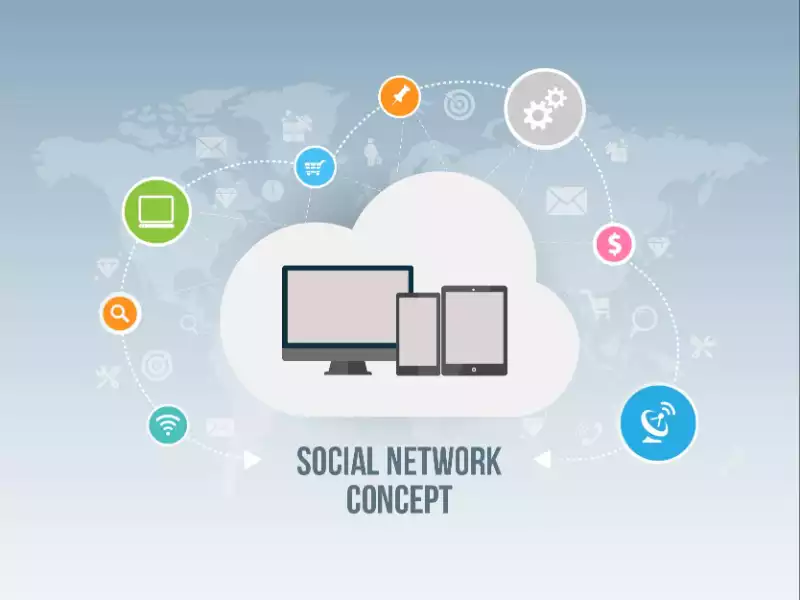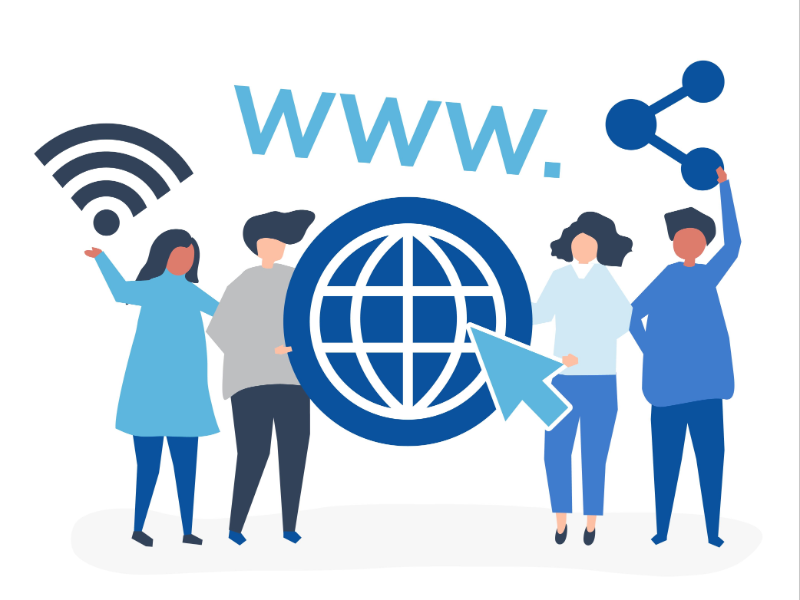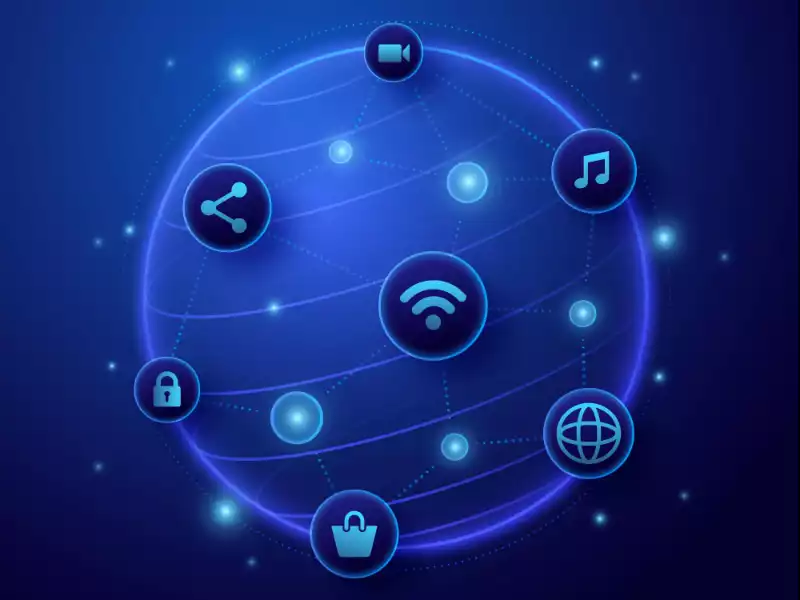- The key differences between centralized and decentralized internet structures
- How decentralization can reshape online privacy and freedom
What is a centralized internet?
In a centralized internet, a handful of large companies or organizations control the majority of online platforms and services. The flow of data and resources is managed through centralized servers, which are typically owned and operated by these entities. These servers act as hubs through which all traffic passes. Major social media networks like Facebook, Instagram, Twitter, and e-commerce platforms like Amazon are all examples of centralized platforms.
The main characteristic of centralized systems is that all data, resources, and decisions are made by a few key players. These platforms aggregate large amounts of personal data from users, which they use for advertising, data analytics, and more. For instance, when you post something on Facebook or upload a photo to Instagram, your data is stored on Facebook’s servers, and the company decides how and when it will be used.
Also read: Layer-2 networks need decentralized sequencers: Metis co-founder
Also read: DeFi 2.0: The next wave of decentralized finance innovation
The drawbacks of centralized internet
Privacy Concerns: Centralized platforms gather vast amounts of data about their users. This data can be sold or used to target ads, raising concerns about privacy invasion and surveillance.
Censorship: Centralized platforms often have the power to restrict or censor content. For example, governments or private companies can impose restrictions on what can be shared or seen, impacting freedom of expression.
Single Points of Failure: Centralized networks are dependent on large data centres and servers. If these systems are attacked or go offline, entire platforms or services can be disrupted, causing widespread service outages.
Lack of Control: Users have little control over how their data is stored, used, or shared. Most of the control lies with the central service providers who can set their own rules and policies.

What is a decentralized internet?
A decentralized internet seeks to eliminate the control of data and services from a few central entities and distribute them across a more peer-to-peer (P2P) network. In this model, no single entity has control over the entire network; instead, power and control are shared among users or smaller, independent providers.
One prominent example of a decentralized system is blockchain technology, which underpins cryptocurrencies like Bitcoin. Blockchain is a distributed ledger that records transactions across many computers, making it virtually impossible to alter or control the data without the consensus of the network participants.
The decentralized model promotes the idea of an open, transparent, and permissionless internet where users can share resources, information, and services without relying on centralized authorities.
Also read: ACM CoNEXT-2024 workshop tackles Internet Decentralization
Also read: What is decentralized internet?
Benefits of a decentralized internet
Enhanced Privacy and Security: Since data is not stored in a central location, decentralized platforms are less vulnerable to hacks or data breaches. Additionally, users have more control over their personal data, allowing them to decide what to share and with whom.
Censorship Resistance: Decentralized networks do not have a single controlling authority, which means that censorship becomes much more difficult. Content creators and users can share information freely without fear of being silenced by central organizations or governments.
Greater Control for Users: A decentralized internet empowers individuals by giving them control over their data and interactions. Users can participate in networks and platforms that align with their values and interests without being subject to corporate policies.
Reduced Single Points of Failure: In a decentralized network, if one node or server goes offline, the rest of the network can continue functioning without major disruptions. This is unlike centralized systems, which depend on a few core servers.

How could decentralized internet reshape the online landscape?
The transition to a decentralized internet could have profound impacts on various aspects of online interaction:
1. Online Privacy and security
One of the most significant impacts of decentralization would be a drastic improvement in privacy and security. By removing centralized data storage, decentralized systems would reduce the risk of large-scale data breaches that have affected companies like Equifax, Facebook, and Google. Additionally, privacy-conscious individuals would have more control over their data, reducing the reliance on companies that monetize personal information.
2. Innovation and competition
Decentralization could foster greater innovation and competition. With fewer barriers to entry, smaller startups and independent developers could build new services and products without having to rely on large platforms like Google or Facebook. This could lead to more diverse services, creating a more dynamic and competitive digital marketplace.
3. Decentralized Finance (DeFi) and blockchain
Decentralized finance (DeFi) is another area that has seen rapid growth. DeFi platforms leverage blockchain technology to provide financial services such as lending, borrowing, and trading without intermediaries like banks. This opens up financial services to a broader audience and challenges traditional financial institutions that have long controlled global finance.
Challenges of decentralization
While the benefits of a decentralized internet are numerous, there are also significant challenges:
Scalability: Decentralized networks may face issues with scalability, as the more nodes that are added, the harder it may become to maintain performance and reliability.
Regulation: Without a central authority, regulating decentralized platforms becomes complex. Governments may struggle to enforce laws related to security, fraud, or illegal content.
Adoption: Widespread adoption of decentralized systems may take time, as it requires significant infrastructure changes and a shift in mindset. Many users are accustomed to centralized systems and may be reluctant to move to a new, unfamiliar model.

